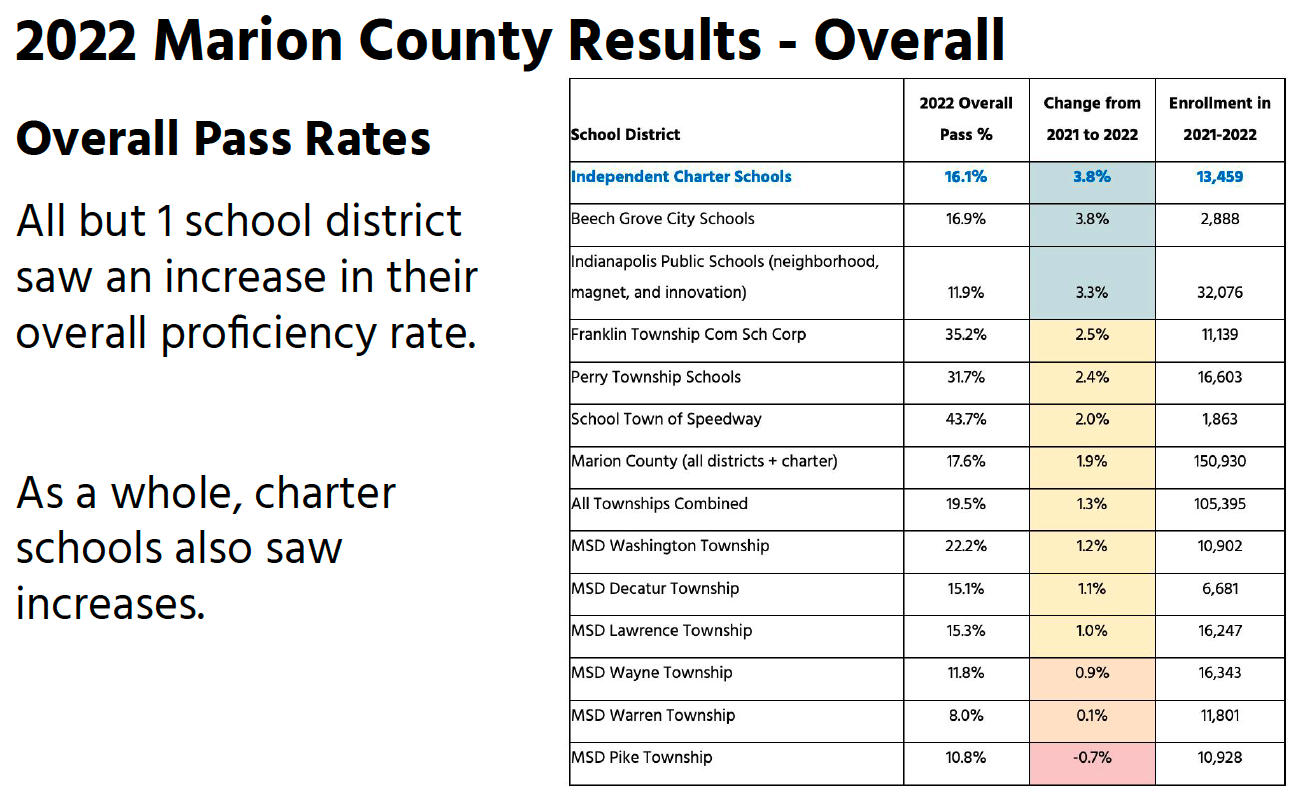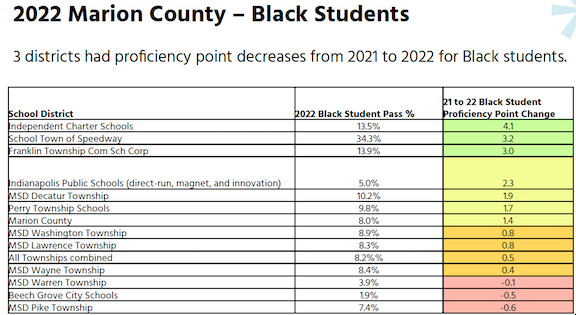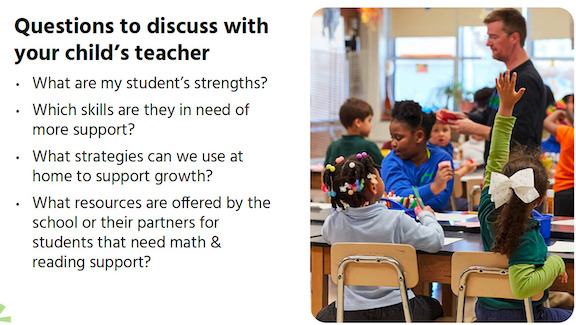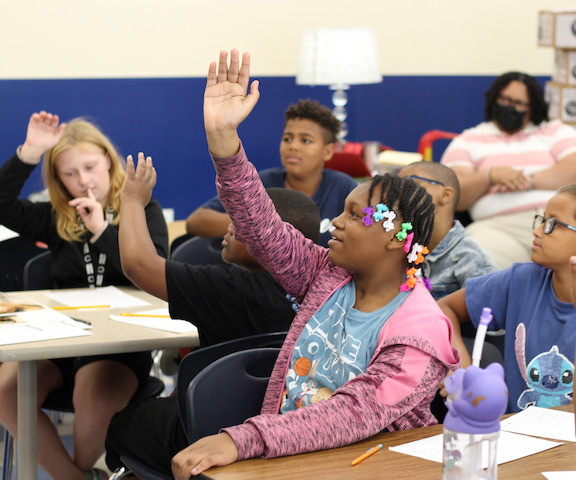ILEARN Community Conversation Recap
ILEARN data helps us understand three things about the state of education in our city and state: 1) our own students’ needs, 2) how schools and districts are serving their students, and 3) how student groups, such as Black and Latino students, are being served by schools. Our recent community conversation on ILEARN 2022 discussed the purpose of this annual state test along with those three things.
Kelli Marshall, The Mind Trust’s Senior Vice President of Schools, kicked the conversation off by explaining that every family should receive a report from their child’s school that indicates their proficiency in math and reading. ILEARN data is not just useful at a whole-school level. This parent snapshot shows exactly where their student is in relation to grade-level content for math and English Language Arts (ELA).
The family report categorizes a student into one of four proficiency levels:
- Below Proficiency – did not pass
- Approaching Proficiency – did not pass
- At Proficiency – pass
- Above Proficiency – pass
Where Students are Based on the 2022 ILEARN
When results are analyzed at the school level, a school’s comprehensive pass rate is the percentage of students who scored At Proficiency or higher on both the math and ELA portions. In response to seeing the statewide passing rate for 2022 was at 30.2%, parent panelist Delma Suber wondered, “What are the barriers keeping students from succeeding on these tests?”
Marshall added, “As a state, we should have been up in arms about the pre-pandemic passing rate [of 37.1%]. If you look at it another way, that means nearly 70% did not pass.” Interim Executive Director of EmpowerED Families Tiera Hollanquest concurred. “Even before COVID, the data was not where it needed to be,” Hollanquest stated. “Our focus now is on collaboration in service of the student.”

Numerous parents, school leaders, education leaders, and community stakeholders chimed in with their perspectives during the interactive livestream. One participant, when reflecting on educator quality in relation to ILEARN outcomes, shared, “Love this conversation as [low ILEARN proficiency] is an issue that is affecting all school types at this point. The quality of the educator is truly the concern and if we are providing them with the professional development necessary to address the gaps, but also celebrate the educators who are doing this well.”
Another parent panelist for the live discussion, Elia James Sanchez, focused on what the 2022 ILEARN results show us about how schools are serving diverse populations. Sanchez shared “I’m happy there is a slight increase [in ILEARN proficiency]. However, we still have a long way to go and it’s important to look at why that is happening, especially for Black and Latino students.”
Most Districts Improve Outcomes for Marginalized Students
While most districts, including independent charter schools as a sector, improved outcomes for Black students, three local districts actually saw their Black student proficiency rates fall on this year’s test. The same trend held true for Latino students as well.

Marshall was careful not to shame individual schools or districts for where their data stands. She shared, “We just want to name what is happening with our students.” Still, Marshall was quick to note that these results ought to be a clarion call that pushes everyone in the education sector to do better and rethink what isn’t working.
In response to seeing Black and Latino student outcomes going backwards in some districts, Suber said “Some schools didn’t improve. That begs the question, what is happening? What is the test designed for? It’s those critical thinking skills. So what curriculum is being used to ensure students have those skills?”
How Parents Can Hold Schools Accountable
One tip Marshall shared for parents is to ask your students’ teachers or school leaders this direct question: “Is my child exposed to grade-level material every day?” One school leader who was watching the livestream chatted in to say “Parents, we need you more than ever! Our community must step up. It’s going to take all of us.” Echoing that sentiment, another community member joined the chat to share, “My children are adults now but I have grandchildren. I too own the data.”

Closing out the conversation, Marshall pulled things back to a focus on classroom instruction as one path forward: “Students respond to teachers who have high expectations and are planned, prepared, and ready to deliver high-quality instruction.” She also reminded the audience that the job of a school is to educate students. “We still haven’t caught up to 2019 levels and those were already too low.”
The Mind Trust is committed to supporting families and schools with the academic and cultural resources necessary to continue accelerating student learning in the coming years. Learn more about a few of our current initiatives that support improving student outcomes. You can also find more ILEARN coverage from us in this blog post that analyzes overall outcomes and subgroup performance.

